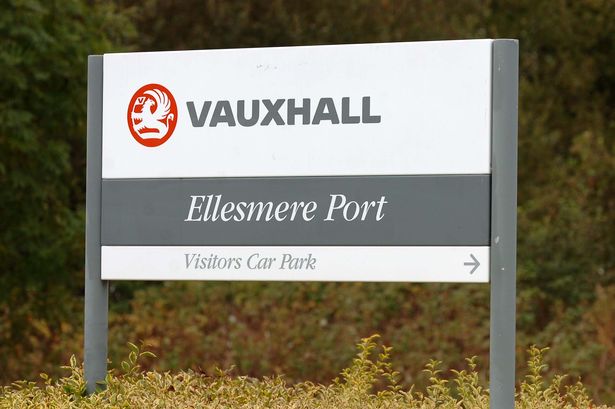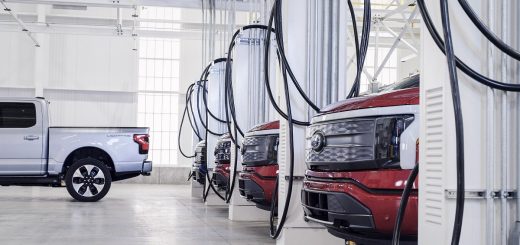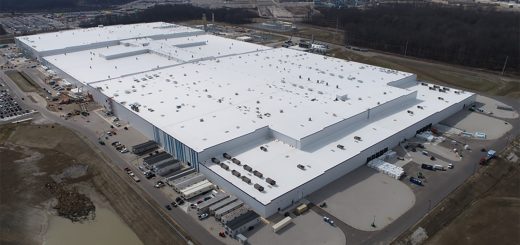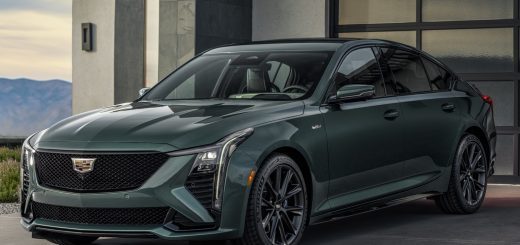As the world continues to recover from the hangover that is “Brexit“, reports and forecasts continue to point to Vauxhall’s Ellesmere Port facility as on the chopping block.
According to CarScoops, the latest report pegs Ellesmere Port with the lowest anchorage, making it most vulnerable to shutdown. In laymen terms, it has the lowest localization of parts of any volume car maker, around 25-percent.
Shutting down the plant would be a precautionary move to protect General Motors against import tariffs placed on the United Kingdom by the European Union, as the UK must not negotiate seperate trade deals for itself. Vauxhall production of the Astra could move to Poland, or Germany, where Opel produces the majority of its vehicles.















Comments
GM will be making lots of money exporting the Astra to the eurozone presently due to drop in value of the pound making UK exports cheaper so don’t think there is any rush to close anything in UK presently . Brexit will be good for UK manufacturing
You are absolutely right, most of this BS comes from Garel Rhys professor of motor industry economics at the UK’s Cardiff Business School who predicted the closure of Ellesmere Port in favour of Bocham. The man is an over rated geek whose predictions are almost always wrong. There is no factory in Germany to build anything new and Gliwice in Poland could not handle all of Ellesmere Port production. In any event it is almost certain where cars are concerned that the EU will have free trade to and from the UK to do anything else would cripple German and to a lesser extent French manufacturers. If the worst happens and the UK reverts to WTO terms that would mean a 10% tax imposed but as the £ has fallen by more than that it will still mean the Port & Luton would be competitive. This is a non story & should be buried. As Vauxhall have said it’s business as usual.
My reading of the term low localizing indicates that Vauxhall has to import a high portion of the components, which due to a devalued Pound will be more expensive, especially if there is duty on UK imports on a tit for tat Euro duty. The low Pound valuation could also cause inflation in the UK, pushing costs up.
Sure, GM produces neither engines nor transmissions on Great Britain, these need all be “imported” from the continent, from Aspern in Hungary, from Poland and from Germany.
Does Ellsmere Port have a stamping plant? Or have those body parts also to be produced on the continent? I know that the Eisenach plant, where the Adam and some Corsa are being produced does not have a stamping plant and does get those from Rüsselsheim. I don’t know about the Zaragosa plant (Spain) where most of the Corsa and the Mokka are being produced.
BTW, the article is not correct in claiming about “Germany, where Opel produces the majority of its vehicles.”
According to the 2014 “Facts and Figures”, the three plants in Germany (Bochum was not yet closed) a total of 365,430 vehicles, Gliwice (Poland) 88,962, Zaragoza (Spain) 319,593 vehicles, Ellsmere Port and Luton (Great Britain) 121,599, St. Petersburg in Russia 10,041 Opel Astra J. One has also to count the 136,023 Mokka assembled in Rep. Korea, the Movano produced by Renault in France and the Vivaros also produced in France and Spein, plus the Agila (rebadged Suzuki) in Hungary. You can easily find that Germany does not produce “the majority”.
At the launch of the Astra K said plans were already in place to increase the UK content of the car throughout the models lifespan, I would imagine those plans are being moved up the priority ladder as we speak. After a bit of digging I have found that the 25% figure is just the UK sourced parts content, it does not include labour costs which would obviously push the total UK input figure up considerably.
This “content” needs to be specified.
Engines, transmissions, axles and what other components come from one of the sevreal engine and transmissions plants and the general components manufacture in Kaiserslautern (Rheinland-Plfalz, Germany).
According to the German language list of Opel plants (the english from opel.com is less detailed), at
http://www.opel. de/opel-erleben/ueber-opel/company/produktionsstaetten.html
Ellsmere Port is the only plant to assemble the Astra station/estate wagon and beside this model it produces the Astra 5-door hatchback, as does also the Gliwice factory in Poland, which also produces the Astra sedan, the Astra 3-door and the Cascada.
One can be sure, that a large part of the Ellsmere Port production goes again into other countries. Those familiar with that plant could tell the proportion of left-hand-steering to right-hand-steering cars… I think the former would form a majority.
The Brexiters in their sovereign disregard of facts ignored that the EU is more than a free trade zone, but that it has developed an internal market with also a standardization of products like it was done by the US ministry of commerce under Herbert Hoover.
This means for the automobile industry that there is no need to construct and build special variants for each and every country, but just one European model which can be sold to and registered in each and every of the 28 member states. They try to achieve this for the EU and the USA by the TTIP (which is in my view an instument for the US to regain its dominance in Europe). For example, cars to be sold in France to not have to be equipped with yellow front lights. White front lights are OK for all 28 EU members.
Based on this standardisation and the free access to the EU internal market, the English automobile industry grew again after the UK joined the EU, with Honda, Toyota and Nissan building new factories, and also BMW new ones for their Rolls-Royce and Mini brands. To be mentioned also the investment in Jaguar and Land Rover by the Indian Tata corporation.
All those companies see their investments possibly devalued depending on the outcome of Britains exit negotiations, and live uncertain years until that is finished. New investments in the British plants is out of question, methinks, until the new relation of the UK with the rest of Europe is settled.
So a majority
Yes, stamping operations are still undertaken for the Astra at the ‘Port. But I understand the majority of stamped components for ‘Port production are imported from Kaiserslautern, Germany and Gilwice, Poland.
Reference the production figures, 2016 should see a considerable increase in UK production. Following the demise of Bochum, the investment case for the Astra specified a minimum of 160k units production each year at the ‘Port – a number I *think* was agreed with the unions. Vivaro production at Luton is also set to top 65,000, following the launch of next generation model and recruitment of a second production shift.
Nobody knows yet where the British government will be aiming at by withdrawing from the European Union. The internal market of the EU grants free movement of capital, goods, services and people, i.e. labor power and the freedom to set up business in every country of the union and the three EEA countries (European Economic Area, i.e. EU + EFAT). Brexiters want only the first three freedoms but reject the fourth. EU politicians say that GB must not do cherry picking and has to take all or nothing.
It is still all in the future, i.e. unkonwn.